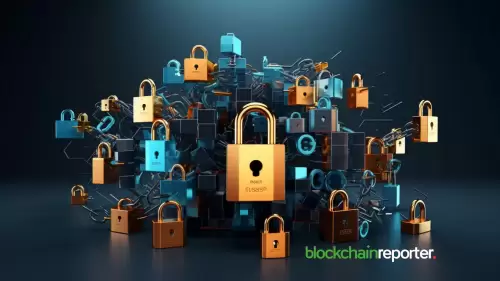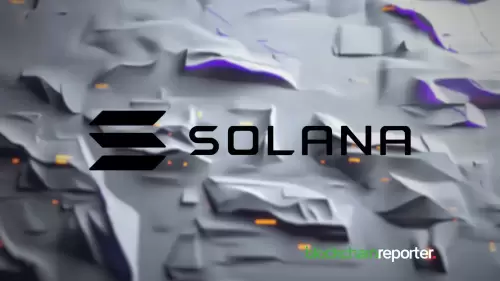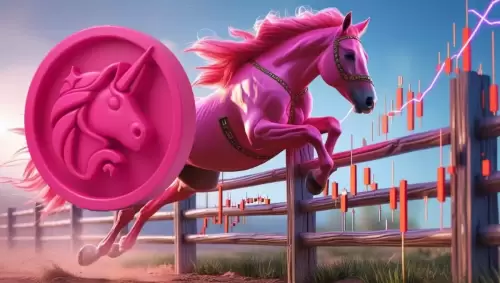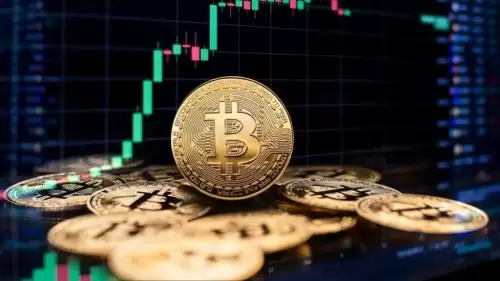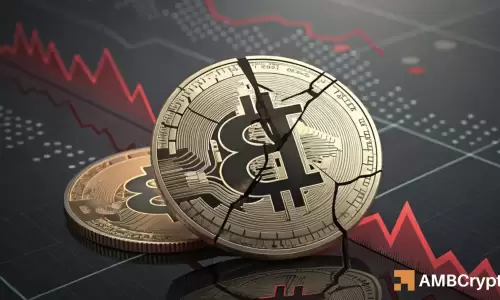 |
|
 |
|
 |
|
 |
|
 |
|
 |
|
 |
|
 |
|
 |
|
 |
|
 |
|
 |
|
 |
|
 |
|
 |
|
Articles d’actualité sur les crypto-monnaies
Governance Tokens: The Keys to Decentralized Decision-Making
May 14, 2025 at 12:22 am

In the realm of cryptocurrency, governance tokens are digital assets that grant voting rights within a crypto project. They go beyond mere coins for trading and function more like ballots. When you hold governance tokens, your input matters in deciding how the project should operate.
These tokens shift control over key decisions from centralized teams to the community. This could involve protocol upgrades or fund allocation, allowing the project to evolve based on user feedback and collective wishes.
A governing system in a blockchain project is often referred to as a decentralized autonomous organization (DAO).
There are over 13,000 DAOs worldwide, and over 6,000 actively involve members in making impactful choices. Together, they manage around $24.5 billion in treasury assets and include approximately 11.1 million governance token holders.
From steering a project's direction to shaping its rules, governance tokens make decentralized governance a reality.
What are governance tokens used for?
Should a project change its fee structure, or launch on a new chain? If you hold the governance tokens, you can vote yes or no.
The concept is straightforward: people who use or invest in a project should also help determine its path. This prevents a few founders or investors from making critical decisions in a vacuum.
Some tokens arrive automatically when you join a platform, while others are earned by providing liquidity or staking. You can also purchase them on major crypto exchanges.
However, acquiring a governance token doesn't guarantee control; it provides the opportunity to participate. The more people engage, the more balanced the system becomes.
Now, let's examine how that voting power works and what makes it significant.
Voting power
The voting power measures how much influence your governance tokens carry during a vote, usually depending on the number of tokens you hold.
The more tokens in your wallet, the greater the weight of your vote in proposals. It's not always a one-token-one-vote system; some projects use different methods to balance things out.
For instance, a "whale" with thousands of tokens might have a larger say, but some platforms cap power or require staking to vote, preventing it from being a simple money game. Other projects utilize quadratic voting, which lessens the impact of someone accruing an unbalanced amount of influence. This encourages more users to participate.
Voting usually occurs through mobile or web apps that connect to your crypto wallet. You select an option, submit your vote, and it gets recorded on the blockchain.
Most votes remain open for a set time and follow a simple majority or quorum rule. Some votes might also require a minimum number of voters to pass.
This brings us to the question of why people would vote in the first place.
What are the incentives for participating in the votes?
Voting in crypto governance can also come with real perks, in addition to shaping a project's direction and determining future updates.
Many projects reward people for participating in proposals to keep the system active and fair. Here’s what you might get for showing up and casting your vote:
How are governance tokens used in DeFi?
In decentralized finance (DeFi), governance tokens are a key part of how platforms work and evolve. They give users the power to make decisions that affect the entire system.
Instead of relying on a company or CEO, DeFi projects let the community vote on how things should be done, how to spend money, and what updates to make.
This is different from traditional startups, where founders often decide strategy and investors care about returns. In DeFi, governance tokens shift control to those who use and invest in the protocols.
These tokens are used to vote on two main types of proposals: Treasury management and protocol changes.
Treasury management
Many DeFi projects have large treasuries—wallets full of tokens or stablecoins. Governance tokens give the community control over how that money is used. It's like a shared budget, and token holders get to vote on what’s worth funding.
This could be paying developers, funding audits, launching marketing campaigns, or supporting ecosystem grants. If a project wants to sponsor a hackathon or partner with another protocol, the decision often goes to a vote.
Good treasury management can help a project grow, stay secure, and reward its community. But bad decisions or low participation can waste resources or stall progress. So even one vote matters.
Protocols changes
Governance tokens also give users the power to shape how a protocol works "under the hood." These votes aren't just about money—they can change the core functions and behavior of the system.
A well-known case is Compound, where its COMP token holders have voted to adjust borrowing limits, pause risky assets, and even upgrade the protocol itself. These aren't suggestions; they're binding changes made through on-chain proposals.
The beauty of this system is that it evolves with its users. If something isn't working or the community feels an opportunity isn't being seized
Clause de non-responsabilité:info@kdj.com
Les informations fournies ne constituent pas des conseils commerciaux. kdj.com n’assume aucune responsabilité pour les investissements effectués sur la base des informations fournies dans cet article. Les crypto-monnaies sont très volatiles et il est fortement recommandé d’investir avec prudence après une recherche approfondie!
Si vous pensez que le contenu utilisé sur ce site Web porte atteinte à vos droits d’auteur, veuillez nous contacter immédiatement (info@kdj.com) et nous le supprimerons dans les plus brefs délais.
-

- Velo Universe, Dex et Defi Security: naviguer dans l'avenir du trading décentralisé
- Aug 05, 2025 at 07:45 am
- Exploration de l'évolution des échanges décentralisés (DEX) en mettant l'accent sur l'univers Velo, la sécurité Defi et la transition vers des plateformes de trading transparentes centrées sur l'utilisateur.
-

- Le portefeuille Bitget révolutionne Solana avec des transactions sans gaz: une nouvelle ère pour Defi
- Aug 05, 2025 at 07:36 am
- Bitget Wallet conduit la charge pour rendre Solana plus accessible avec des transactions sans gaz, simplifiant Defi pour tout le monde. Découvrez comment cette innovation remodèle l'expérience utilisateur.
-

- Ozak Ai, Boom crypto et potentiel de retour sur investissement: est-ce la prochaine grande chose?
- Aug 05, 2025 at 07:30 am
- Plongez dans le potentiel d'Ozak Ai dans le boom de la cryptographie. Ses outils commerciaux alimentés par l'IA peuvent-ils fournir un retour sur investissement explosif? Nous explorons les tendances et les idées.
-

- Les ETF de Solana et la poursuite de tous les temps High: Sol est-il défini sur Soar?
- Aug 05, 2025 at 07:30 am
- Le buzz de Solana est de retour! La spéculation du FNB, la croissance du réseau et la manie de la pièce mème pourraient pousser Sol vers un nouvel ATH. Mais y a-t-il d'autres joueurs dans le jeu?
-

-

-

-

- Bitcoin, Michael Saylor et Stratégie: un mastodonte de transformation numérique
- Aug 05, 2025 at 07:01 am
- Explorez la stratégie de Bitcoin audacieuse de Michael Saylor, les avoirs massifs de Microstrategy et le paysage évolutif de l'adoption de la cryptographie d'entreprise. Wall Street se fait-il enfin?
-

- Les détenteurs de Bitcoin se préparent à la sortie du marché au milieu des signaux baissiers
- Aug 05, 2025 at 07:00 am
- Les détenteurs de bitcoins à long terme montrent des signes de sortie du marché en tant que statistiques clés flash les signaux baissiers, suggérant une correction potentielle malgré des prix élevés.






















































